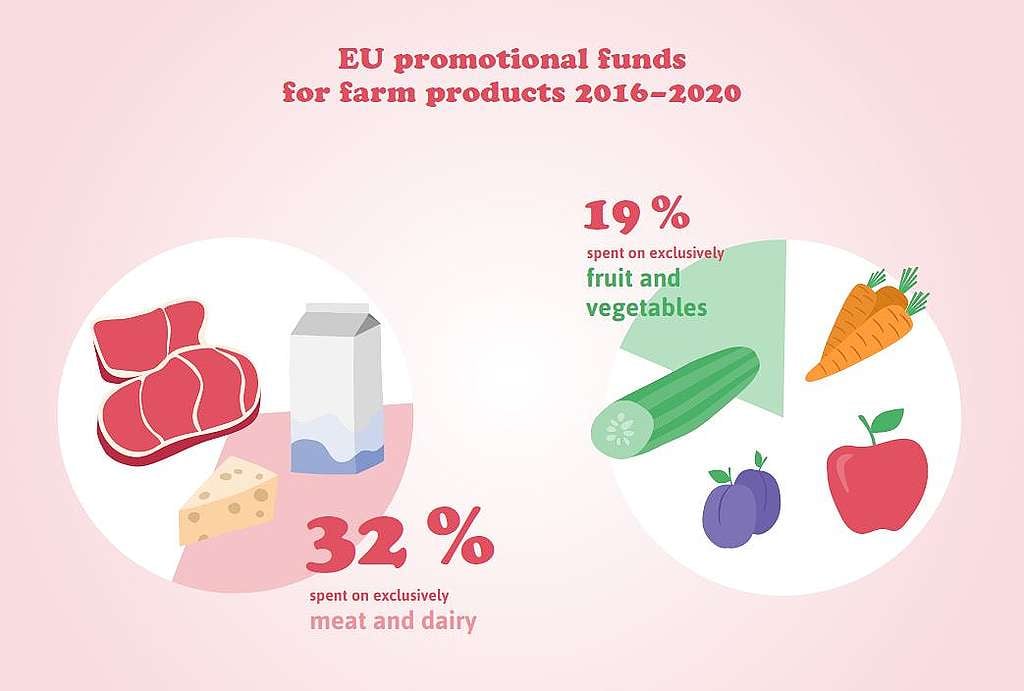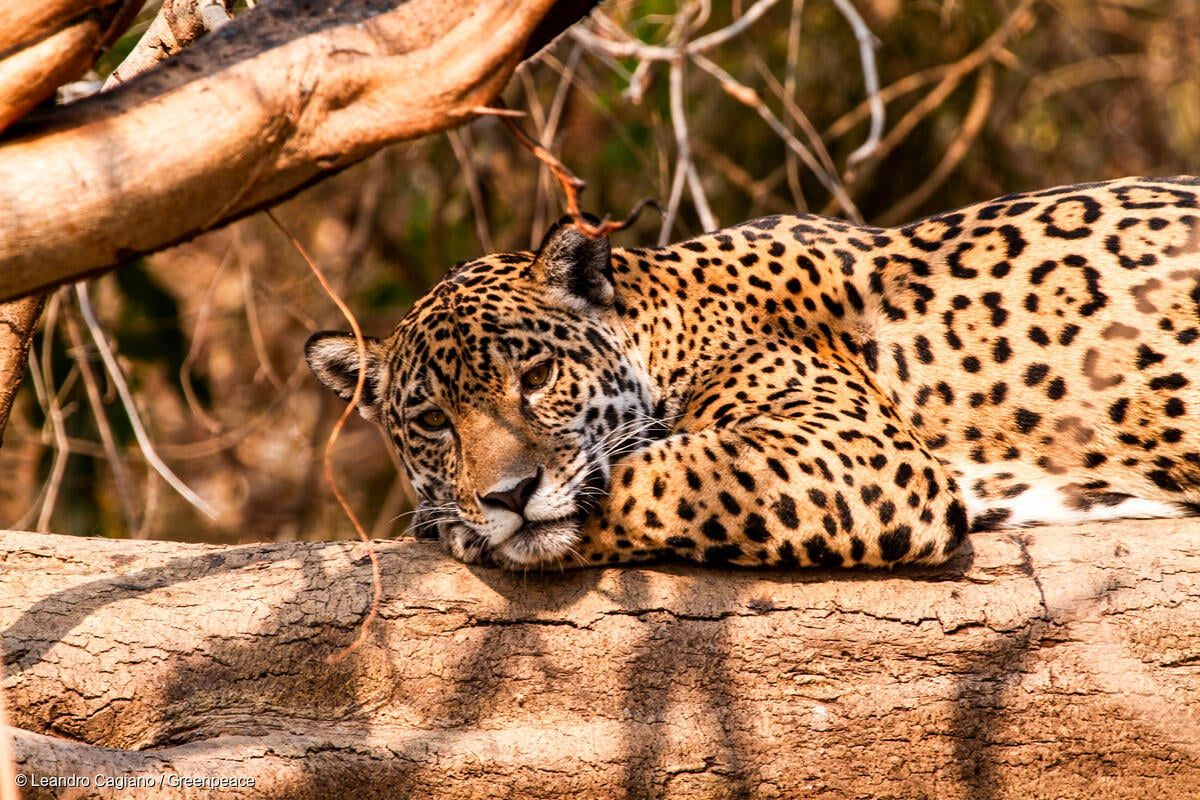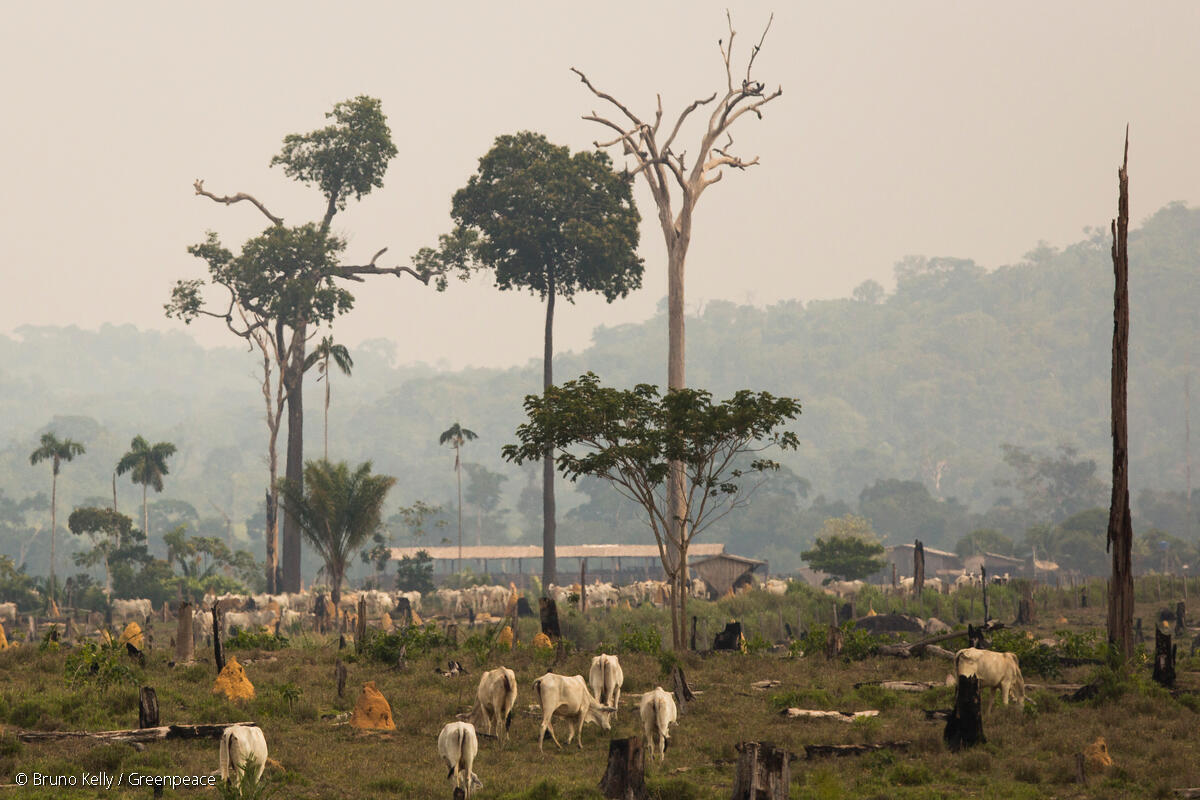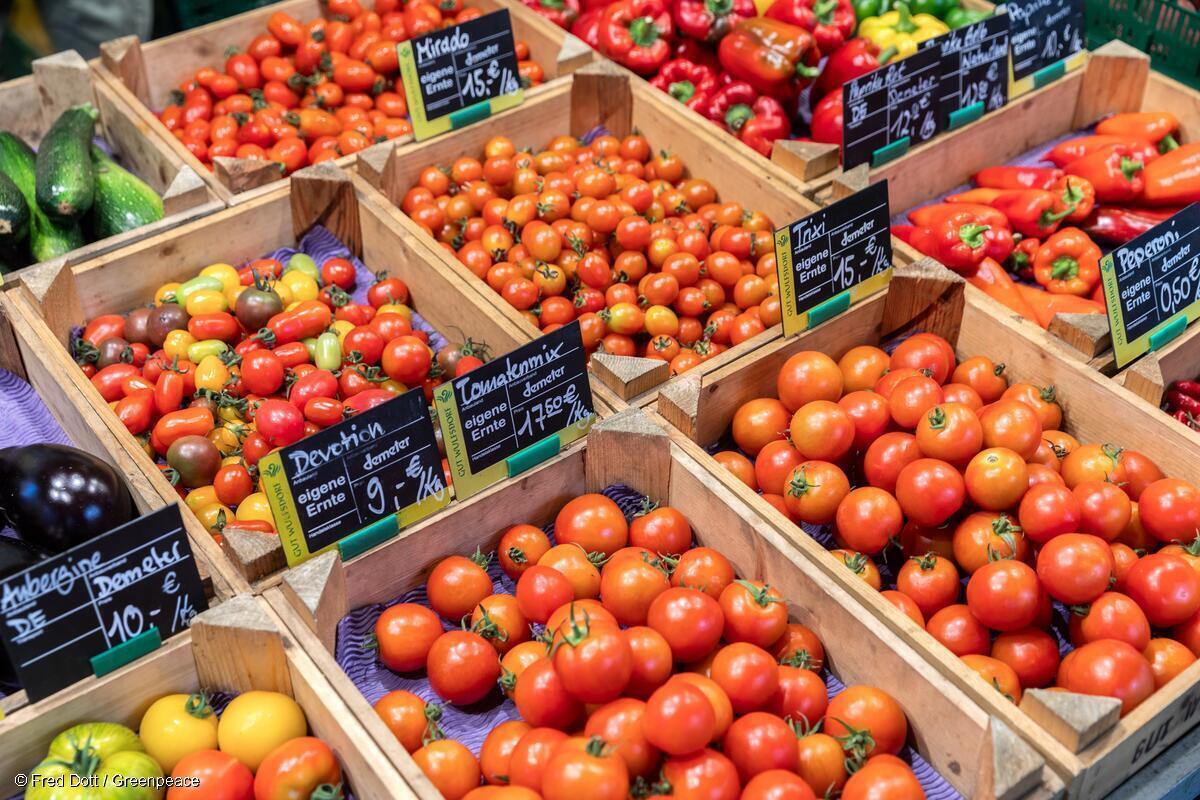Europeans consume around twice as much meat as the global average, and about three times as much dairy. To protect public health and nature, and to tackle the climate emergency, scientists are recommending a reduction of European meat and dairy consumption by at least by 70 % by 2030.
Nevertheless, national and EU politicians have so far lacked the courage to tackle industrial animal farming, despite warnings from scientists on the disastrous impacts it has on nature, the climate and public health. We have heard excuses appealing to ‘consumer choice’, and that politicians should not tell people what to eat. But the reality is that existing policies already dictate what food is available, affordable and encouraged.

Taxpayer money is used not only to fund the overproduction of meat and dairy, but is also used to fund promotional campaigns with the objective of increasing the consumption of European animal products. This is despite the fact that 79 % of respondents in a recent Eurobarometer poll said they consider that marketing and advertising that do not contribute to healthy, sustainable diets should be restricted.
We analysed all EU spending on promotional campaigns for agricultural products for the years 2016–2020, and looked at 146 detailed projects approved in eight EU countries during 2018–20191. The imbalance of promotional funding in favour of animal products reveals a prioritisation of some of the most environmentally damaging food production. Over the years examined, 32 % of the funding went to promotional campaigns exclusively for meat and dairy, and a further 28 % went to campaigns of mixed baskets of products, almost all of which included some meat or dairy, compared to only 19 % for exclusive promotion of fruit and vegetables. In addition to this, many of the funded campaigns state that it is their objective to reverse trends of falling meat or dairy consumption, or to stop the growth of consumption
from slowing. Only 9 % of the promotional funding went to projects that included organic produce.



